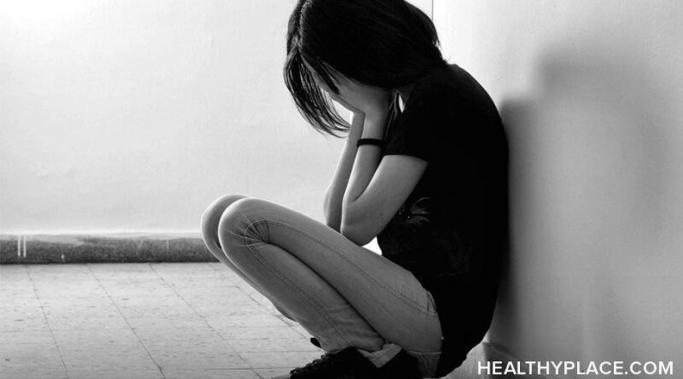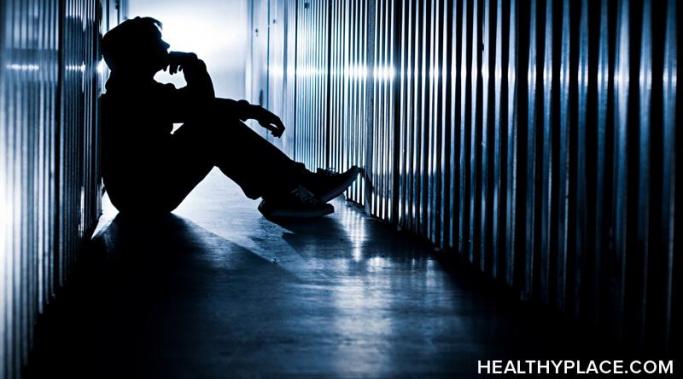Blogs
Anyone who has read my blog for any amount of time knows that music plays a powerful, indescribably important role in my life. In the past, I’ve specifically discussed my love of metal music and how listening to metal music helps my mental health. I want to use this post to discuss music in a more general sense, as I believe no matter what kind of music you love and listen to, you can and will get something positive out of it.
The journey to better self-esteem is a lengthy but empowering process. In my experience, understanding my own identity was a great kick-starter for that process. I will continue to work through how that helped me. Today, I'll cover the second step: sharing your identity with others.
It's been more than 10 years since I took those first reluctant, clumsy steps into the eating disorder healing process. But even now, after all this time, eating disorder recovery is still a series of both ebbs and flows. As someone who wants a clear line of demarcation to signal the end of this path to recovery, it's frustrating that no such finish line seems to be in sight.
Is there a difference between overeating and binge eating? During my eating disorder recovery, I didn't know anyone else who was openly struggling with binge eating or overeating, so I didn't know which category I fit under. Now I know I've experienced both overeating (as most people have) and binge eating. The labels might seem arbitrary, but there are distinctions between overeating and binge eating.
When I was undiagnosed with attention-deficit/hyperactivity disorder (ADHD), and I'd gotten into arguments with romantic partners, I regularly found myself unable to form a coherent sentence. I wanted to say so many things, but trying to transfer those thoughts from my head to my mouth left me feeling like I'd eaten a too-large spoonful of mashed potatoes and was now being asked to sing the national anthem live on television. My body would tense with anxiety. My mind would be a chaotic whirlwind of TV static, and when I opened my mouth, all that came out was a long, irritating beep letting everyone know the channel was not accessible.
When you are chronically anxious, one of the effects you might often deal with is feeling exhausted. Depending on the situation, if I have experienced a very stressful situation, I tend to feel exhausted when my body starts to wind down from the physical effects of stress. And so, I might find myself quite fatigued from anxiety, but at the same time, I might have a hard time sleeping as well, also because of anxiety. So it becomes a cycle of inadequate sleep and anxiety that seems to be never-ending. Then, if I haven't gotten a good night's rest for a long time, what I find is that I deal with the effects of fatigue. This includes having a hard time concentrating and having a hard time focusing. I also find that it affects my memory, and it affects my mood as well. Ultimately, fatigue can affect me in several ways.
Do people with bipolar disorder have good sex lives? Do people with bipolar disorder have sex lives at all? And what effect does mood have on one's sex life? These are just some of the questions that people ask about the sex lives of people with bipolar disorder. Let's explore some of the answers.
Mainstream media is slowly changing to be more inclusive of many aspects of life. You can find more television shows and movies that include people with disabilities. There is an increase of coverage with sensitive topics, including suicide, mental health, and abuse. For example, "Maid" shows the kinds of abuse that can go undetected, opening eyes to the real definition of abuse. Unfortunately, it is just the beginning. There is so much more ground to cover before society gets to the point that we need to be at with empathy and acceptance.
To be honest, this is not the post I originally planned to write today. However, life has an interesting—often infuriating—habit of forcing my attention to land on unhealthy behaviors or unresolved issues that I need to acknowledge but would much rather ignore. Sometimes this comes in the form of painful news or circumstances, while other times, it comes in the form of a reminder that I'm an imperfect human who still has healing work to do. But today, in particular, I find myself asking the question: How do I receive painful news without taking it out on the body I live in, which has done nothing to deserve my wrath?
If you carry the proof of your history of self-harm on your skin, you may have thought about what life would be like without those scars. But is self-harm scar removal surgery necessary?









